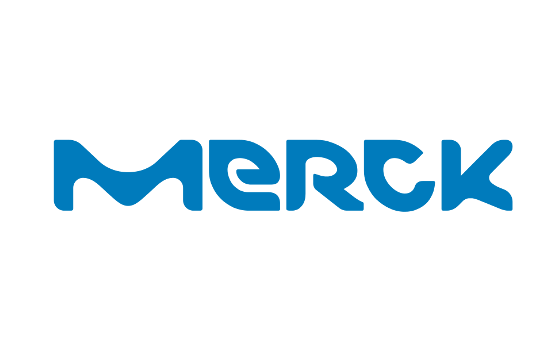 "A curios person is more likely to bring an idea to life at work" - more than eight out of ten employees (85%) from Germany, the United States., and China agreed with this statement. This is one of the findings of the first global curiosity study from Merck, a leading science and technology company. The study examines the curiosity index of workers in four dimensions. The goal: to compare curiosity levels at work in an international context. Even though curiosity plays an important role on the job, the majority of study participants did not describe themselves as curious. Only one in five employees (20%) identified with this quality. Staff instead described themselves as organized, collaborative, and detail-oriented. "Curious" came only in twelfth place. Nevertheless, this quality holds great potential for a company’s ability to innovate.
"A curios person is more likely to bring an idea to life at work" - more than eight out of ten employees (85%) from Germany, the United States., and China agreed with this statement. This is one of the findings of the first global curiosity study from Merck, a leading science and technology company. The study examines the curiosity index of workers in four dimensions. The goal: to compare curiosity levels at work in an international context. Even though curiosity plays an important role on the job, the majority of study participants did not describe themselves as curious. Only one in five employees (20%) identified with this quality. Staff instead described themselves as organized, collaborative, and detail-oriented. "Curious" came only in twelfth place. Nevertheless, this quality holds great potential for a company’s ability to innovate.
"Innovation and technological progress do not appear out of the blue. They always develop out of a person's sense of curiosity about something new. Scientific curiosity and the joy of discovery are thus our most important resources when it comes to finding answers to global challenges such as the aging of our society or population growth," said Stefan Oschmann, Chairman of the Executive Board and CEO of Merck. "That's why curiosity should be a key aspect of our everyday work."
Four dimensions of curiosity
Merck examined with its Curiosity Study 2016 the extent to which staff are able to make the most of their curiosity at work, and if they are encouraged to do so. Last year, the company already surveyed 1,013 full-time employees online in the United States. In 2016, Merck expanded its survey to China and Germany in order to draw a global comparison, since these three countries are characterized by different cultures and economic systems. To define the concept of curiosity, and to make it measurable, Merck has worked closely with curiosity expert Todd Kashdan, who teaches at George Mason University in the United States. Together, they came up with four dimensions of curiosity: Inquisitiveness, creativity, openness, and distress tolerance. For the study, Merck conducted more than 3,000 online surveys with full-time employees in Germany, the U.S., and China. Focus group interviews were also carried out.
Lack of creative freedom
Just because employees do not describe themselves as curious does not necessarily mean that they’re not. They simply do not exhibit this quality as strongly outwardly - likely because curiosity is usually not as appreciated in their daily work as other qualities. The survey results also support this thesis. Thus, 73% of respondents do not feel comfortable asking more questions at work. Nearly one out of every two workers surveyed in Germany (45%) agreed with the statement that they are discouraged by their employer from challenging the status quo. To develop new ideas, employees first and foremost need flexibility: 35% of German employees cited self-directed work as the most important factor.
Promote curiosity
Merck launched the Curiosity Initiative in August 2016 to promote curiosity. On the interactive online platform at curiosity.merckgroup.com, visitors can take a self-test to find out how curious they are. There are also tips for overcoming creative blocks and a number of fascinating articles on the subject of curiosity. The scientific foundation of the Curiosity Initiative is the Merck Curiosity Council, consisting of experts in the field of curiosity research. The Council is composed of Professor Todd Kashdan of George Mason University in Virginia, USA, and Dr. Carl Naughton, German-English author, scholar, and speaker. He has researched and taught in the field of educational psychology at the University of Cologne, and also written books on the topics of thinking, communication, and curiosity. Further members of the Council include Andreas Steinle, CEO of the Future Institute in Kelkheim/Frankfurt and Dr. Kunlin Wei, professor of psychology at the Institute for Psychological and Cognitive Sciences at the University of Beijing, China.
For further information, please visit:
https://curiosity.merckgroup.com
About Merck
Merck is a leading science and technology company in healthcare, life science and performance materials. Around 50,000 employees work to further develop technologies that improve and enhance life - from biopharmaceutical therapies to treat cancer or multiple sclerosis, cutting-edge systems for scientific research and production, to liquid crystals for smartphones and LCD televisions. In 2015, Merck generated sales of € 12.85 billion in 66 countries.
Founded in 1668, Merck is the world's oldest pharmaceutical and chemical company. The founding family remains the majority owner of the publicly listed corporate group. Merck, Darmstadt, Germany holds the global rights to the Merck name and brand. The only exceptions are the United States and Canada, where the company operates as EMD Serono, MilliporeSigma and EMD Performance Materials.